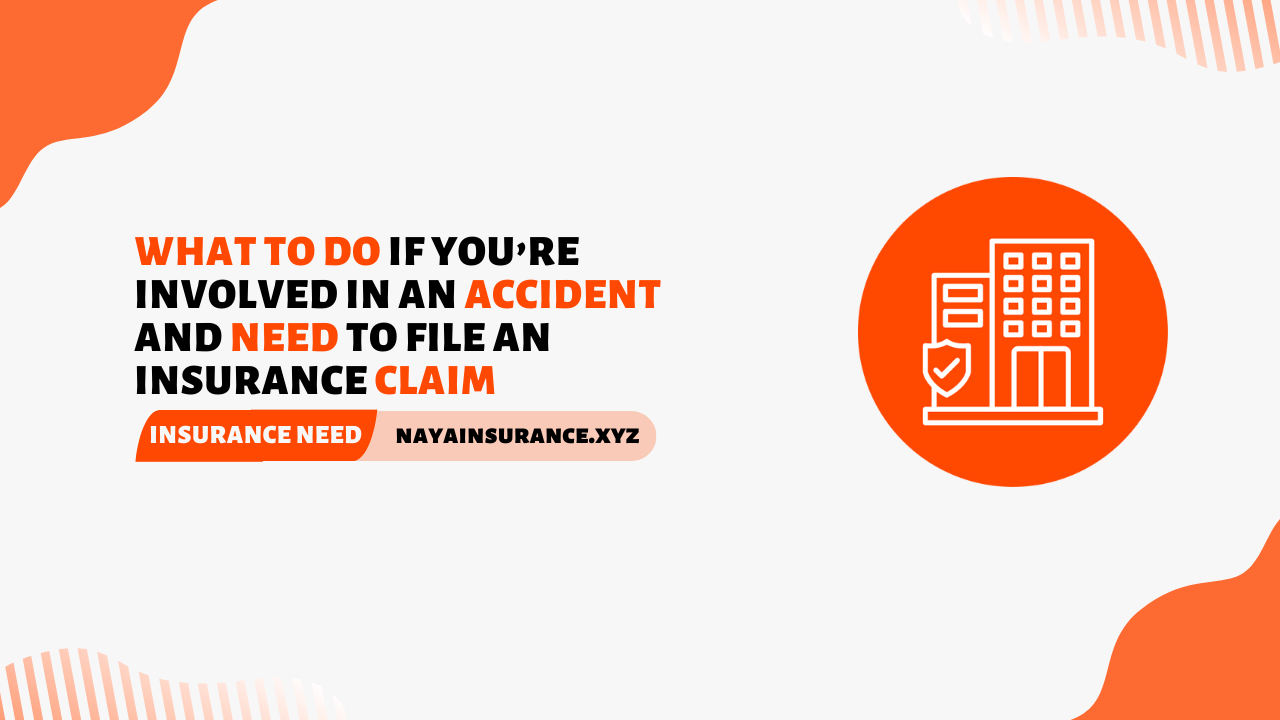What to Do if You’re Involved in an Accident and Need to File an Insurance Claim
Accidents happen when we least expect them. Whether it’s a minor fender-bender or a more serious collision, knowing how to handle the aftermath can make a big difference. Filing an insurance claim might seem overwhelming, but having a clear understanding of the process can help you stay calm and collected. Let’s walk through the essential steps you need to take if you’re ever in this situation.
Immediate Steps to Take After an Accident
Ensure Safety
First and foremost, make sure everyone involved is safe. Check yourself and your passengers for injuries. If anyone is hurt, call for medical assistance immediately.
Call Emergency Services
Regardless of the accident’s severity, it’s crucial to call the police. They’ll document the scene and create an official report, which will be essential for your insurance claim.
Move to a Safe Location
If possible, move your vehicle to a safe spot out of traffic. Turn on your hazard lights to alert other drivers.
Gathering Information
Exchange Information with Other Parties
Get the names, contact information, and insurance details of everyone involved. This includes drivers, passengers, and witnesses.
Take Photos and Videos
Document the scene with photos and videos. Capture the damage to all vehicles, road conditions, and any visible injuries.
Collect Witness Statements
If there are witnesses, ask for their contact information and a brief statement of what they saw. Their accounts can be valuable for your claim.
Reporting the Accident
Notify the Police
Always report the accident to the police. Their report will serve as an official record of the incident.
File a Police Report
When you file a police report, provide accurate and detailed information about the accident. This report will be crucial for your insurance claim.
Contacting Your Insurance Company
Notify Your Insurer
Contact your insurance company as soon as possible. Provide them with the details of the accident and any relevant documentation.
Provide Accurate Information
Be honest and accurate when describing the accident. Inaccurate information can lead to complications with your claim.
Understanding Your Insurance Policy
Review Your Coverage
Take a moment to review your insurance policy. Understand what is covered and what is not.
Understand Your Deductibles
Know your deductibles, which are the amounts you’ll need to pay out of pocket before your insurance kicks in.
Filing the Insurance Claim
Steps to File a Claim
Follow your insurance company’s procedures for filing a claim. This usually involves filling out forms and providing documentation.
Required Documentation
You’ll need to provide documents such as the police report, photos of the accident scene, and medical records if there are injuries.
Working with the Insurance Adjuster
What to Expect
An insurance adjuster will be assigned to your case. They’ll assess the damage and determine the amount of compensation.
Providing Additional Information
Be prepared to provide any additional information the adjuster might need. This could include repair estimates and medical bills.
Getting Your Vehicle Repaired
Finding a Repair Shop
Choose a reputable repair shop to fix your vehicle. Your insurance company might have preferred shops, but you’re free to choose your own.
Getting Repair Estimates
Obtain estimates from different repair shops. This will help ensure that the insurance company offers a fair amount for repairs.
Dealing with Medical Expenses
Coverage for Medical Bills
Your insurance policy might cover medical expenses resulting from the accident. Keep track of all medical treatments and bills.
Keeping Track of Medical Records
Maintain detailed records of all medical visits, treatments, and expenses. These will be necessary for your insurance claim.
Understanding Claim Settlement
How Settlements Work
Once the insurance company reviews your claim, they’ll offer a settlement amount. This is the compensation for your losses.
Negotiating a Settlement
If the settlement offer seems too low, you can negotiate with the insurance company. Provide evidence to support your request for a higher amount.
Handling Disputes and Denials
Common Reasons for Denial
Claims can be denied for various reasons, such as lack of coverage or insufficient documentation. Understand why your claim was denied.
Steps to Appeal a Denied Claim
If your claim is denied, you have the right to appeal. Follow the insurance company’s appeals process and provide any requested information.
Legal Considerations
When to Seek Legal Help
If the insurance process becomes complicated or if you’re facing a dispute, consider seeking legal help. An attorney can guide you through the process.
Understanding Your Rights
Know your rights as an insurance policyholder. This will help you navigate any challenges that might arise during the claim process.
Preventive Measures for the Future
Tips to Avoid Accidents
To reduce the risk of future accidents, practice safe driving habits. Stay alert, avoid distractions, and follow traffic laws.
Keeping Your Insurance Up to Date
Regularly review and update your insurance policy to ensure you have adequate coverage.
Conclusion
Being involved in an accident can be stressful, but knowing the steps to take can make the process smoother. From ensuring safety to filing your insurance claim, each step is important.
Remember, accidents happen to everyone. Stay calm, follow the necessary procedures, and you’ll be well on your way to resolving the situation and getting back on the road.

